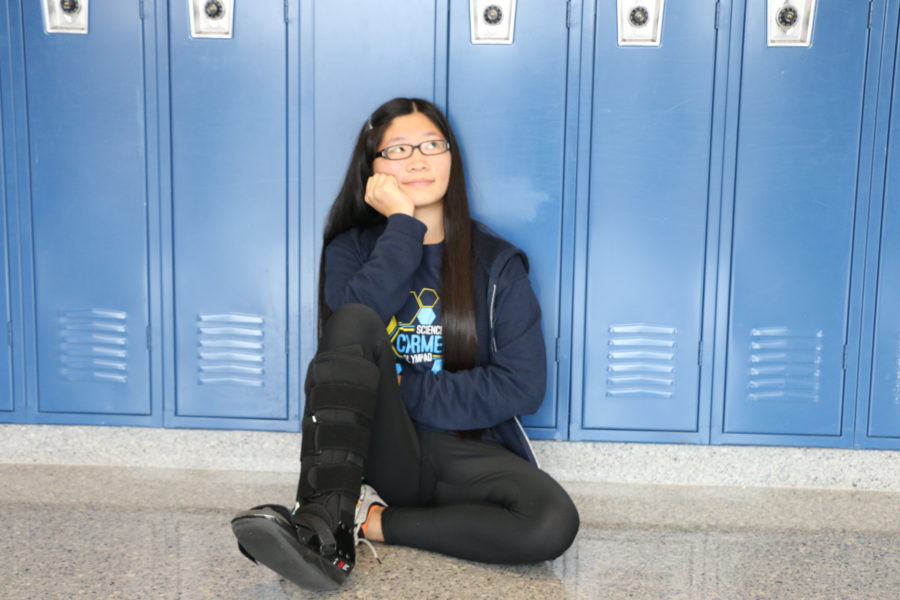Today marks the second anniversary of the Sandy Hook Elementary School shooting in Newtown, CT. It’s been about a month since the attacks in Paris, Syria and Lebanon. Next year, it will have been 15 years since 9/11. There are also several hundreds of crimes across the world that haven’t garnered as much attention.
While I haven’t lost any loved ones to any shootings or bombings, I still find it awful to hear about all these because it scares me that someone I love could be hurt or even killed in some tragedy that could happen any day. Or maybe it could even happen to me. Who knows? That’s unpredictable right now, but it’s obvious that attacks are happening much more frequently now. So thank goodness our strategy during lockdown drills isn’t sitting in rows hiding in the room anymore. But I (and you as well, probably) have always wondered: Why do people do such terrible things? What were they thinking?
It’s just a vicious cycle. And some of its roots may lie deep in social culture among American youth today.
There’s a reason why anti-bullying is emphasized so much in school. According to bullyingstatistics.org, people who have been bullied can respond negatively in a wide variety of ways, such as having lower self-esteem, having difficulty in trusting others, being more aggressive and having difficulty controlling that aggression. Additionally, such symptoms can persist for several years afterwards after the bullying occurs.
Social alienation also significantly influences tragedy. According to the Association for Psychological Science (APS), we as humans have a natural desire to feel accepted in a group wired in our brains because it was and still is essential to survival. The opposite of acceptance—rejection or exclusion—takes terrible tolls on mental health, causing depression, extra stress and other similar symptoms to bullying.
Regardless, the effects of both still have the potential to cause their victims to lash out and disturb society. A survey conducted by Alfred University showed that students believe that the top reasons for school shootings involve the shooters getting revenge on people who have hurt them, not violent video games or media coverage of violence.
I wonder, then, if bullying and excluding people can brew the feelings of hatred that could potentially lead to violence, why haven’t we stopped doing either? According to the Erikson’s theory of psychosocial development, the quest for an identity, especially in groups, characterizes adolescence as teenagers transition from increased independence from family and increased dependence on peer groups. The complication is that these groups are extremely fluid, which makes it more complicated to maintain feelings of acceptance. But it is also the time when people are the most sensitive to peer rejection and thus worry more about it.
It’s obvious that we should be nice. But we often don’t realize that there are others standing alone that we could make a profound impact on by reaching out to them with the same kindness that we have for our friends within any groups we may be in. Try that—maybe you’ll make a new friend, but maybe even better, it could achieve more peace.
The views in this column do not necessarily reflect the views of the HiLite staff. Reach Sarah Liu at sliu@hilite.org.

































![AI in films like "The Brutalist" is convenient, but shouldn’t take priority [opinion]](https://hilite.org/wp-content/uploads/2025/02/catherine-cover-1200x471.jpg)









































![Review: “The Immortal Soul Salvage Yard:” A criminally underrated poetry collection [MUSE]](https://hilite.org/wp-content/uploads/2025/03/71cju6TvqmL._AC_UF10001000_QL80_.jpg)
![Review: "Dog Man" is Unapologetically Chaotic [MUSE]](https://hilite.org/wp-content/uploads/2025/03/dogman-1200x700.jpg)
![Review: "Ne Zha 2": The WeChat family reunion I didn’t know I needed [MUSE]](https://hilite.org/wp-content/uploads/2025/03/unnamed-4.png)
![Review in Print: Maripaz Villar brings a delightfully unique style to the world of WEBTOON [MUSE]](https://hilite.org/wp-content/uploads/2023/12/maripazcover-1200x960.jpg)
![Review: “The Sword of Kaigen” is a masterpiece [MUSE]](https://hilite.org/wp-content/uploads/2023/11/Screenshot-2023-11-26-201051.png)
![Review: Gateron Oil Kings, great linear switches, okay price [MUSE]](https://hilite.org/wp-content/uploads/2023/11/Screenshot-2023-11-26-200553.png)
![Review: “A Haunting in Venice” is a significant improvement from other Agatha Christie adaptations [MUSE]](https://hilite.org/wp-content/uploads/2023/11/e7ee2938a6d422669771bce6d8088521.jpg)
![Review: A Thanksgiving story from elementary school, still just as interesting [MUSE]](https://hilite.org/wp-content/uploads/2023/11/Screenshot-2023-11-26-195514-987x1200.png)
![Review: "When I Fly Towards You", cute, uplifting youth drama [MUSE]](https://hilite.org/wp-content/uploads/2023/09/When-I-Fly-Towards-You-Chinese-drama.png)
![Postcards from Muse: Hawaii Travel Diary [MUSE]](https://hilite.org/wp-content/uploads/2023/09/My-project-1-1200x1200.jpg)
![Review: "Ladybug & Cat Noir: The Movie," departure from original show [MUSE]](https://hilite.org/wp-content/uploads/2023/09/Ladybug__Cat_Noir_-_The_Movie_poster.jpg)
![Review in Print: "Hidden Love" is the cute, uplifting drama everyone needs [MUSE]](https://hilite.org/wp-content/uploads/2023/09/hiddenlovecover-e1693597208225-1030x1200.png)
![Review in Print: "Heartstopper" is the heartwarming queer romance we all need [MUSE]](https://hilite.org/wp-content/uploads/2023/08/museheartstoppercover-1200x654.png)




